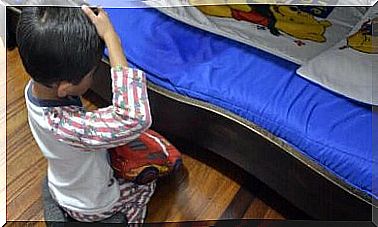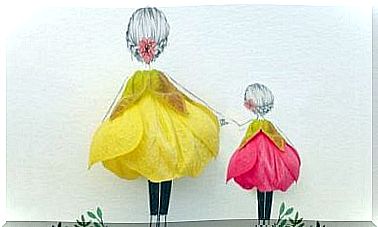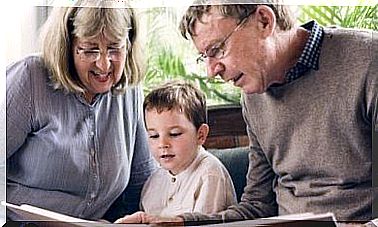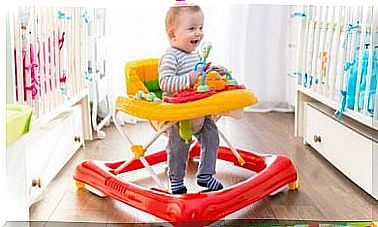Egocentric Stages In Children: Watch Out!

Egocentrism can manifest itself at an early age. It is all too common for children to refuse to share with others and not take into account the feelings of others. But how should parents react to egocentric stages in children?
What are egocentric stages in children?
When we say that adults are egocentric, it means that they only think of themselves. They do not care what others think or feel.
In children, egocentrism is somewhat different. The fact that children go through egocentric stages does not mean that they will grow up and be selfish adults. This is just one stage during their development.
At this stage, children want to be the center of attention. They have not yet developed what we call empathic thinking.
In fact, all children go through this phase to some extent. It is normal and healthy, and parents should not worry too much about it. What they should do is show patience and give their child a lot of love.
Phases in egocentric stages in children
The quote from Saramago reflects how harmful it can be to give egoism free rein, both for adults and children. For this reason, it is important for parents to know how to act when children go through egocentric stages. This starts with knowing the phases at this stage:
The discovery phase
During this phase, children learn from everything around them. If they notice selfish behavior, they will imitate it. For this reason, it is important to teach your child to share. Lead by example.
The relationship development phase
This is when connections and friendships develop in children. According to psychologist Paul-Alexandre Osterrieth, children up to the age of 5 do not feel the need to share things with others. When they play together, they do not have a common goal in mind.
But between the ages of 6 and 7, children begin to understand the importance of cooperation. This means that they can share with others and develop relationships.
The acceptance phase
During this phase, the child should show signs of having learned appropriate social skills. These abilities and behaviors are learned through instruction, imitation, preparation, and practice. This is what all parents should strive to achieve with their children.
When do egocentric stages in children begin?
When do children become egocentric? Many parents may wonder about this question.
According to many studies, egocentric stages occur in children from 2 or 3 years of age. This is because in human nature, everyone tends to be egocentric.
However, developing social skills through education and good parenting can change this.

From an early age, children feel that they are at the center of their world. This makes it difficult for them to understand the situations of others.
Children at this age cannot show empathy because they do not understand that those around them are people they are with, with their own opinions and needs.
Manifestations of egocentrism in children
Egocentric stages in children are often characterized by frequent outbursts of rage. This is due to a lack of understanding in the little ones, which often leads to frustration.
Outbursts, screams and insults are how children try to get what they want. It is important to help them at this stage, otherwise this may become an all too common occurrence.
How to act during egocentric stages in children
Parents need to be positive. Keep in mind that it is possible to change children’s behavior with constant encouragement to do the right thing. But how can we do this?
If your children have breakdowns for egocentric reasons, do not give them what they want to calm them down. Do not try to distract them with anything else either.
Ideally, you should stay calm and tell them in as few words as possible what to do.
After the outbreak has passed, you can explain to them what you expect from them next time. For this to work, a calm and peaceful atmosphere at home is crucial.
Your children will not learn not to scream for what they want if other family members do it all the time.
The link to language acquisition
The egocentric stages in children begin to soften with language development. This usually happens at about 4 years of age.
The reason for this is that language allows children to relate to others, and thus understand the points of view of others. This leads to increased maturity and understanding.

Use encouragement, not coercion
Encouragement, not coercion, should be the motto for parents who want to teach their children to share. Children follow their parents’ behavior and attitudes. One thing they should learn is that other people exist and have their own needs.
It is therefore important to make sure that your children understand that it can be fun and interesting to share with others. This is something they will learn mainly through your example.
Do not force them
Parents should not force their children to let others play with their toys and possessions if they do not want to. Teaching them instead to share is the right thing to do.
To teach them to do something different than to force them to do something. Also, do not make fun of their selfish behavior. If you do, children will feel even more isolated and misunderstood.
These are just a few tips on how to react to egocentric stages in children. The important thing is to remember that children learn through what is happening around them, whether it is good or bad.








